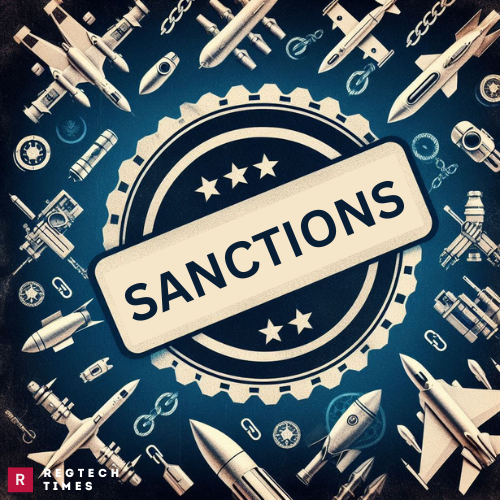In a bold move, the United States has imposed strict curbs on several companies from Pakistan, Iran, China, and the United Arab Emirates (UAE). These companies are accused of helping with the development of dangerous weapons programs, drones, and evading sanctions. This decision by the US government is part of its efforts to protect its national security and prevent dangerous technology from falling into the wrong hands.
US Target Firms Involved in Weapons Programs
On Monday, the US government announced that it had added 26 companies and organizations to what is known as the “entity list.” The entity list is a type of blacklist. Once a company or organization is on this list, it becomes very difficult for them to get items or technology from the United States. If they want anything from the US, they must get special permission from the government, which is very hard to obtain.
The US Department of Commerce explained that these companies were involved in activities that threaten US security and go against its foreign policy. The companies are mainly based in Pakistan, China, and the UAE. The US claims that these firms helped with weapons programs in Pakistan and Iran, violated export controls, and supported Russia’s war efforts in Ukraine. These actions are considered very serious by the United States, which has strict rules about who can access its technology.
Weapons Programs at the Center of Sanctions
Pakistan:
Nine of the blacklisted companies are from Pakistan. According to the US, these companies were working as front companies or procurement agents for an already blacklisted group called the Advanced Engineering Research Organization (AERO). This organization has been under US restrictions since 2010. The US claims that these companies helped AERO obtain technology and items from the US by hiding the true identity of the end users. These end users are believed to be involved in Pakistan’s cruise missile and strategic drone programs, which fall under the broader category of weapons programs.
TSMC’s Shocking Breach of US Sanctions Puts Apple Chips at Risk
By using front companies, these Pakistani entities made it difficult for the US to track where the items were going and how they were being used. This kind of activity is considered a serious violation of export control laws, which are designed to stop sensitive technology from being used in dangerous ways, especially in weapons programs.
China:
Six Chinese companies were also added to the list. The US accused these companies of acquiring American items that are used to help China’s military modernization. This means that these companies bought US technology that could be used to improve China’s military equipment and capabilities. The US is also concerned that some of these companies were involved in supporting Iran’s weapons programs and drone development, adding to the seriousness of the accusations.
UAE and Egypt:
The United Arab Emirates (UAE) and Egypt also had companies added to the entity list. Three companies from the UAE and one from Egypt were accused of either obtaining or attempting to obtain US components that are restricted due to US sanctions on Russia. These companies are believed to have tried to find ways to get around the sanctions and obtain US technology for Russia. This kind of behavior is viewed very seriously by the US, as it could undermine international efforts to stop Russia’s war in Ukraine.
Impact on Firms Supporting Weapons Programs
Being placed on the entity list has serious consequences for companies. Once a company is on the list, it can no longer buy US technology or items without getting a special license from the US government. These licenses are extremely difficult to obtain. This restriction can have a huge impact on a company’s ability to do business, especially if it relies on technology from the US for weapons programs or other sensitive projects.
The goal of this action is to stop the flow of important technology that could be used for military purposes or to harm US interests. By making it harder for these companies to get US items, the US hopes to weaken their ability to support dangerous weapons programs.
In a related move, the US Department of Commerce also removed a company called Sandvine from the entity list. Sandvine, which is based in Canada, had previously been blacklisted. However, the company made changes to ensure its technology could no longer be misused in ways that violated human rights. Because of these changes, the US government decided to remove Sandvine from the list.
The US is tightening its controls on companies that it believes are helping develop dangerous weapons programs, drones, or trying to evade sanctions. The addition of these 26 firms to the entity list shows the US government’s determination to protect its security and prevent sensitive technology from being used in harmful ways.


